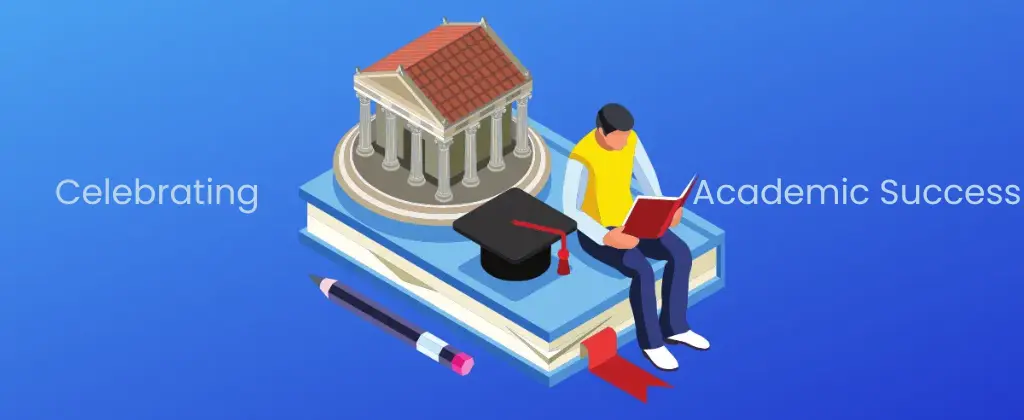Mastering Academic Success is an orientated goal each student strives to achieve, yet it requires more effort and efficiency than just regularly attending classes and completing assignments. Achieving Success in academics involves adopting effective study habits that can enhance learning, upgrade one’s understanding, and throughout lead to better efficiency for tasks at hand. Adopting strategic study methods makes studying more efficient and also decreases stress, while increases one’s confidence in their abilities.
Creating a study schedule helps manage time efficiently, ensuring that each subject gets the attention it deserves. When you allocate hours for studying, you reduce the possibilities of procrastination. The schedule should be realistic and flexible, allowing adjustments as needed. The schedule should be flexible, making the study process more manageable over time. This consistent approach helps improve focus and helps in developing the skill of gathering data or information over long periods of time.
Setting goals for achieving success
Setting clear Pre-Primary Teachers, attainable goals is crucial for staying on track and maintaining motivation on mastering academic success. Large tasks seem overwhelming, but breaking them down into smaller, more manageable objectives makes them less daunting. This focused objective gives a sense of direction and accomplishment on mastering academic success. Goals should be measurable so that progress can be tracked, allowing students to adjust their plans if necessary. Active learning techniques engage the mind more effectively than passive reading or memorization.
Enhancing Academic growth with Study schedule
By explaining the material out loud or writing summaries, the brain processes and organizes information better. This method also highlights areas that need further clarification, enabling more targeted study sessions. Active learning helps students understand and retain information more deeply, making it easier to recall during exams. For example, flip teaching should be encouraged more often in class, in the revision sessions.
Studying for extended periods without breaks can lead to burnout. A well-known technique for avoiding this is the “Pomodoro” method, which states Taking breaks helps to refresh the mind and improves concentration when you return to studying. These short intervals also prevent information overload, allowing students to absorb and retain knowledge more effectively. Maintaining an organized study space and system is key to avoiding unnecessary stress.
Learning Techniques in Academic Success
When materials such as textbooks, notes, and assignments are easily accessible, it saves time and allows for a more focused study session. Organizing tasks by priority, such as finishing urgent homework before moving on to other activities, ensures that everything is completed on time. A tidy and organized environment nurses a sense of control and helps maintain clarity in the learning process. By following these tips, students can cultivate effective study habits that pave the way for academic success.
Setting specific goals for yourself play an essential role for keeping your dopamine levels up when you are getting your hands dirty in ink. Making smaller milestones which can easily be accomplished increase productivity and help keep you motivated throughout the study session. Psychology Today recommends using the SMART method which includes dividing and conquering your lengthy syllabus by setting such goals. Another practice which goes hand in hand with setting smaller milestones is awarding yourself between different topics, pages or paragraphs.

Empowering the Academic Success with the Smart Method
This method takes a mental route to physically energize your body and keep you happy and productive while studying. It might be tempting to leave all your studying for that big exam up until the last minute, but research suggests that cramming does not improve longer term learning. Truly understanding topics is the only possible way to find solution to difficult or tricky questions. Cramming should only be utilized at certain times as a last minute option when there is no other way out.
Taking a more practical turn, constantly reviewing what you have covered is a great way to remember and consolidate all that you have learned. Reviewing can be done by flashcards, practicing difficult questions and frequently quizzing yourself. This technique lies on the principle of exercising the muscles of your brain and keeping it activated at all times whilst studying. If studying all alone can get nerve racking and anxiety inducing for you, then having a study buddy or partner can definitely relax that heartbeat.
Celebrating Academic success and reflecting on progress
Having someone to study with whether it be a friend or a parent can also help clearing doubts and managing topics efficiently by taking turns. By planning the schedule for your study sessions ahead of time it can lead to less messy and organized learning. An organized brain can often lead to a more organized environment which makes these precious hours of learning even more dynamic by handling multiple things with a fresh and organized mindset.
As the learners are the own judges of their own learning, taking these steps can often help in getting the results we want for ourselves. Studying isn’t all just about the magnitude of vigor you are applying on yourself and the book, it is about the session being constructive in a holistic nature for the future. Keep trying on mastering academic success.
